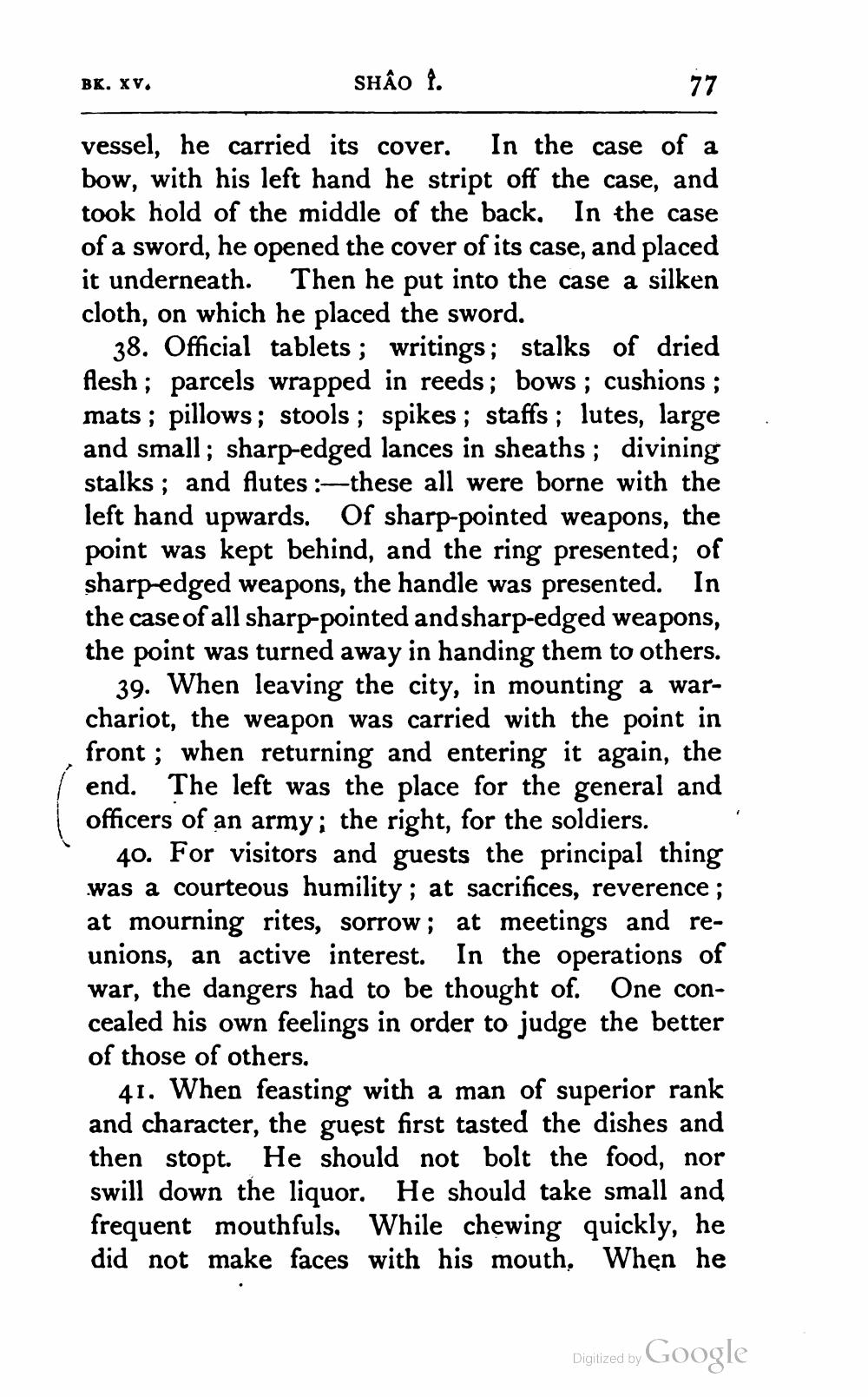________________
BK. XV.
SHẢO .
vessel, he carried its cover. In the case of a bow, with his left hand he stript off the case, and took hold of the middle of the back. In the case of a sword, he opened the cover of its case, and placed it underneath. Then he put into the case a silken cloth, on which he placed the sword.
38. Official tablets ; writings; stalks of dried Alesh ; parcels wrapped in reeds; bows; cushions ; mats; pillows; stools; spikes; staffs ; lutes, large and small; sharp-edged lances in sheaths; divining stalks ; and Autes :—these all were borne with the left hand upwards. Of sharp-pointed weapons, the point was kept behind, and the ring presented; of sharp-edged weapons, the handle was presented. In the case of all sharp-pointed and sharp-edged weapons, the point was turned away in handing them to others.
39. When leaving the city, in mounting a warchariot, the weapon was carried with the point in front; when returning and entering it again, the end. The left was the place for the general and officers of an army; the right, for the soldiers.
40. For visitors and guests the principal thing was a courteous humility; at sacrifices, reverence; at mourning rites, sorrow; at meetings and reunions, an active interest. In the operations of war, the dangers had to be thought of. One concealed his own feelings in order to judge the better of those of others.
41. When feasting with a man of superior rank and character, the guest first tasted the dishes and then stopt. He should not bolt the food, nor swill down the liquor. He should take small and frequent mouthfuls. While chewing quickly, he did not make faces with his mouth. When he
Digitized by Google




